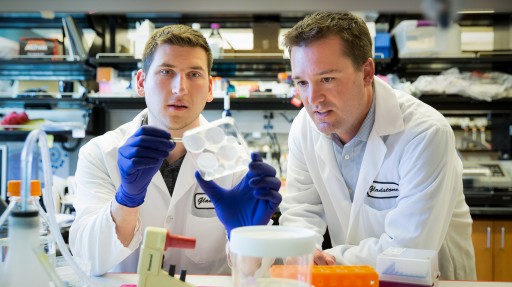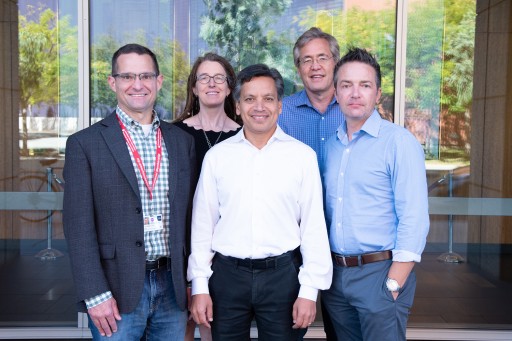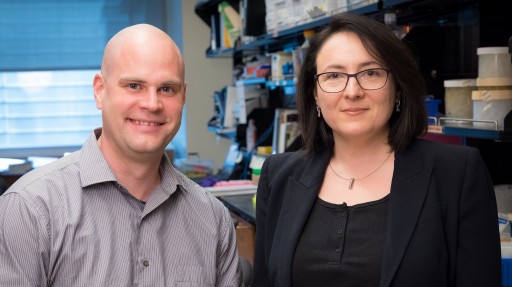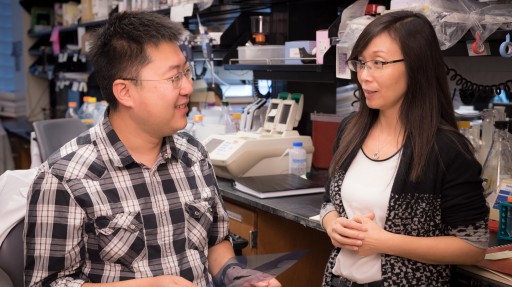Latest News Feed
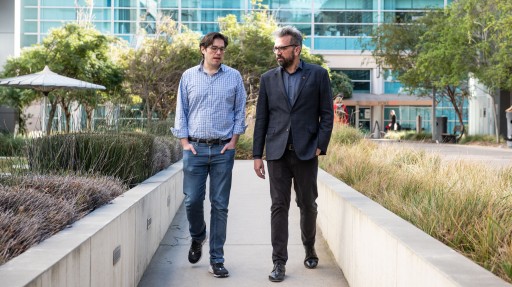
A new study uses large-scale genetic approach to uncover human genes controlling HIV infection.
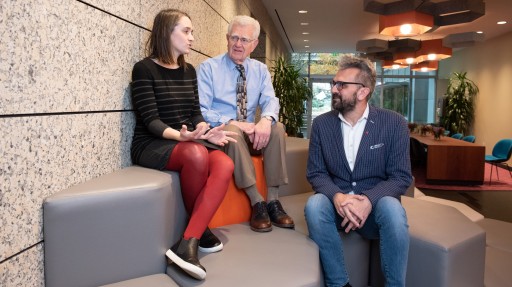
With $4.8 million from the NIH, Gladstone scientists will investigate how the protein apoE4 causes neurodegeneration in Alzheimer's disease.
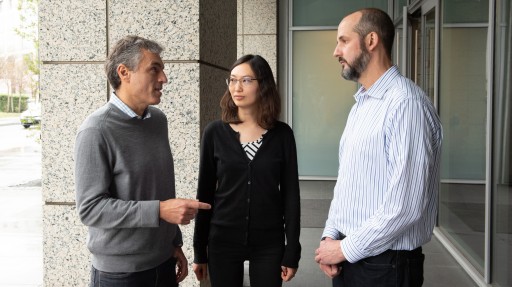
New study shows potentiating a subset of NMDA receptors may be beneficial in Alzheimer's disease and Dravet syndrome.

Five new members join the Gladstone Foundation Board
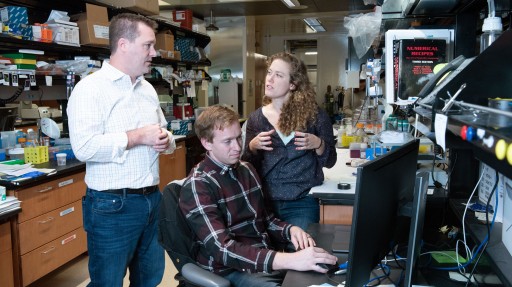
Machine, Meet Stem Cells

New study shows how patterns in brain activity can be an early predictor of Alzheimer's symptoms
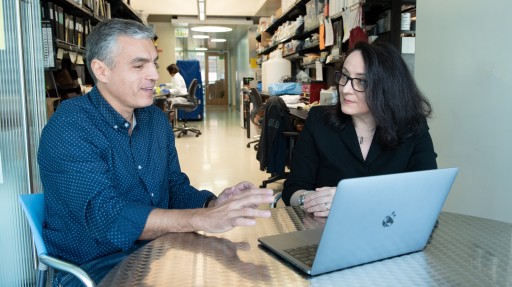
NIH award supports collaborative work to discover the connection between neurovascular dysfunction and cognitive decline in Alzheimer's disease.
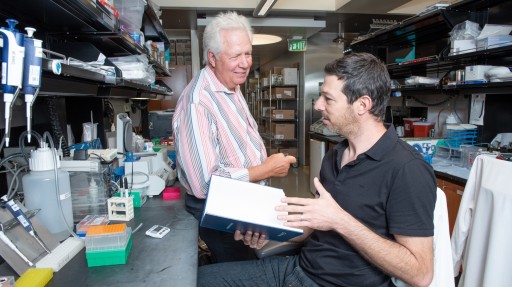
Gladstone researchers Warner C. Greene and Eytan Herzig collaborated with Xyphos Biosciences, Inc., to develop a novel immunotherapy for HIV.
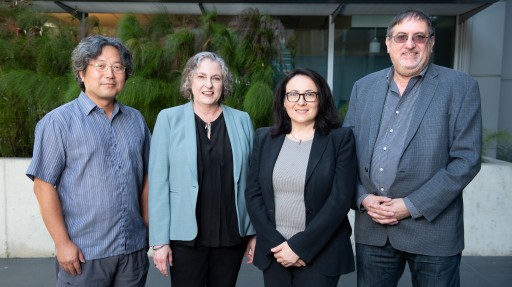
The biotech company MedaRed, Inc. is founded on groundbreaking basic research from Gladstone Institutes, UC San Francisco, and UC San Diego
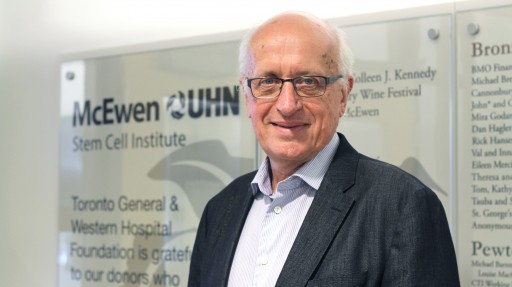
Keller's work with pluripotent stem cells has led to a platform for disease modeling and regenerative medicine
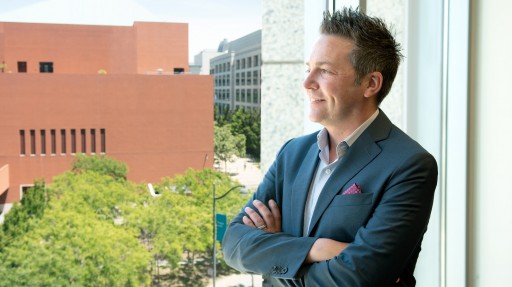
Benoit Bruneau is selected to lead the Gladstone Institute of Cardiovascular Disease

The National Institutes of Health renews its funding of a promising internship program at the Gladstone Institutes

Basic science discovery explains a fundamental way human cells differ from yeast cells.
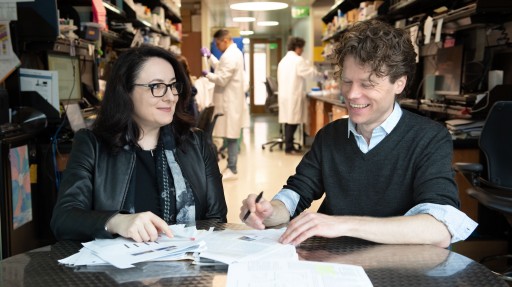
Study by Gladstone scientists finds blood protein destroys memory storage sites in the brain and may lead to new treatments
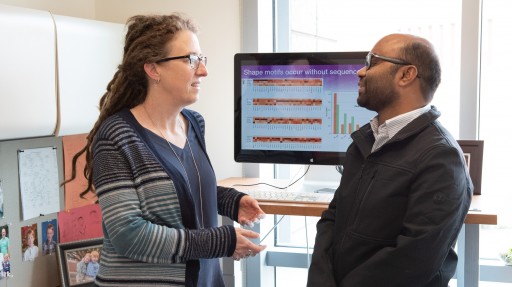
New study challenges a fundamental assumption of how proteins interact with the human genome
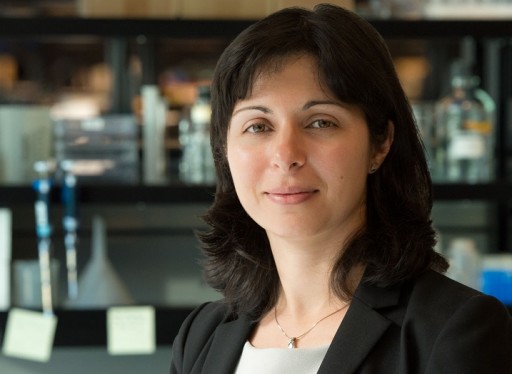
An unexpected brain region is important for Dravet Syndrome, finds study from the Gladstone Institutes
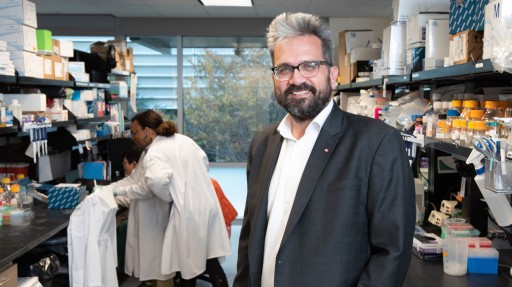
Insight into how three of the world's most devastating viruses interact with human cells opens the door for much-needed treatments
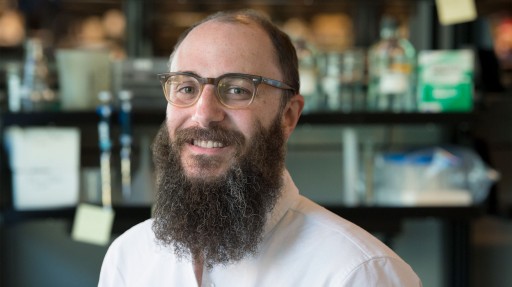
Shipman will build new technologies to understand the development of the brain
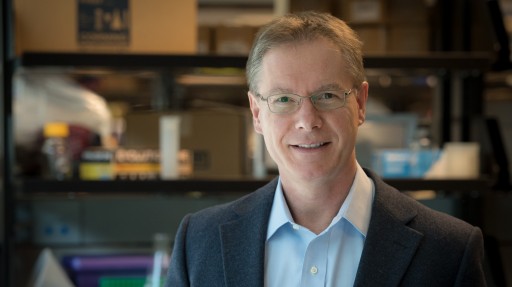
Gladstone scientists uncover new gatekeeper function of the anti-aging molecule
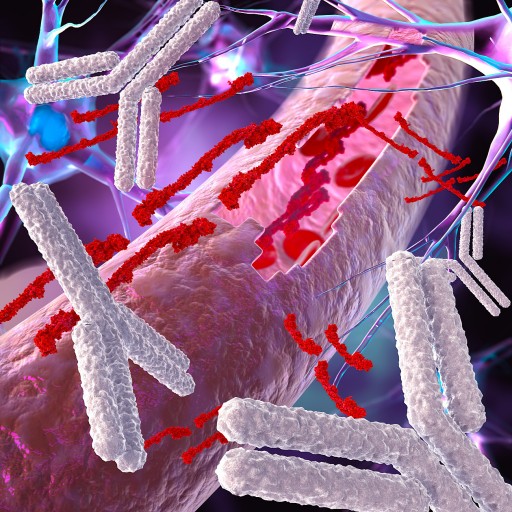
Gladstone researchers have stopped the detrimental effects of blood-brain barrier leaks

The NIH funds an initiative at the Gladstone Institutes to assess the safety of CRISPR-like therapies in human tissues

New discoveries about how cells self-organize could help researchers create more authentic organ models for research or transplantation

Robert Wicks appointed the new vice president of philanthropy

Gladstone researchers discover a noisy step in gene expression
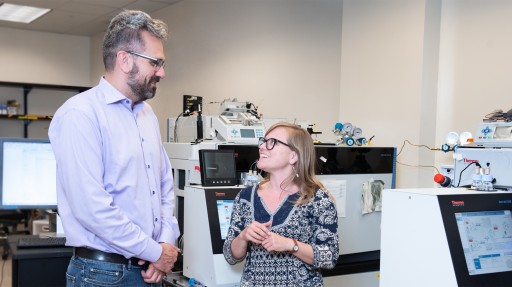
Connecting the dots between human papillomavirus and smoking-related cancers

The co-inventor of CRISPR genome editing technology expands research collaborations to San Francisco's Mission Bay research community

New study from the Gladstone Institutes uncovers how the viruses bypass your body's defense mechanisms

Scientists shed light on cells' most fundamental process
Wernig was selected for his groundbreaking research in cellular reprogramming and stem cell-based therapies for genetic disease

Scientists from the Gladstone Institutes discover how to enhance the longevity of cells that kill tumors and infected cells
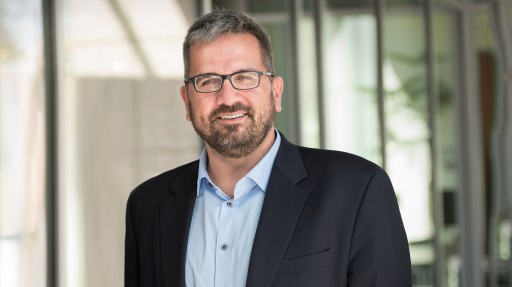
A team of scientists from the Gladstone Institutes, UCSF, and UC Berkeley identify nearly 200 potential drug targets
BioMotiv and Cure Network Dolby Acceleration Partners collaborate to advance the development of better treatments for brain disorders
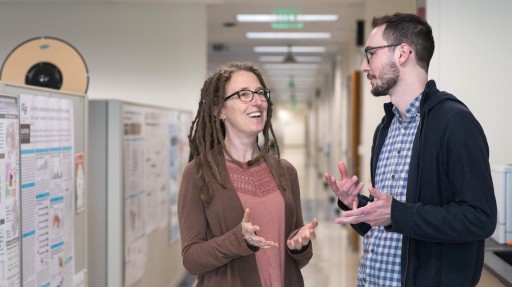
A new computational approach from the Gladstone Institutes identifies genes that may help microbes live successfully in the human gut

Scientists at Gladstone reveal how the virus decides between fates.
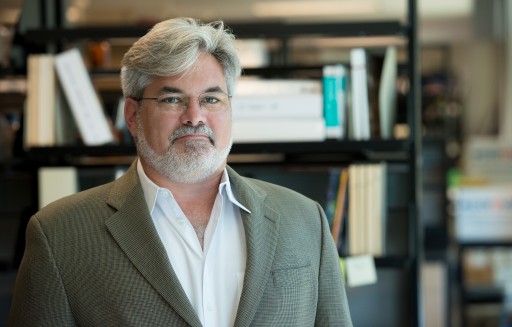
Gladstone and Google AI collaborate to uncover the tip of an iceberg that could transform biomedical science
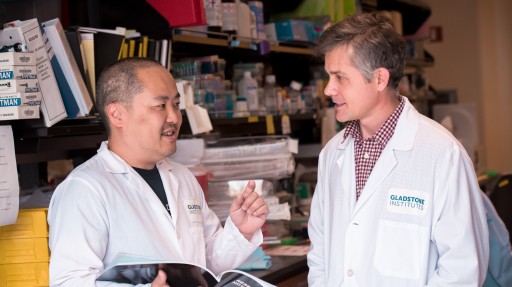
Researchers at the Gladstone Institutes provide answers to decade-old questions

New insights into how a gene causes damage could impact future drug development
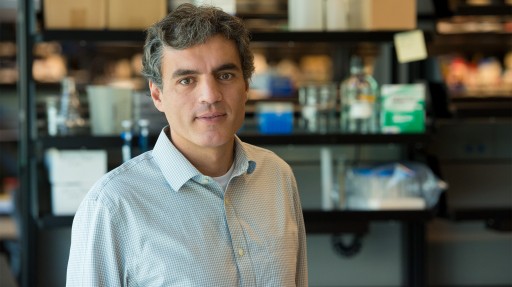
Transplanting a special type of neuron into the brain restores cognitive functions in Alzheimer's models, shows a new study by Gladstone scientists

Gladstone scientists identify genes that enable adult cells to divide and multiply

Gladstone launches the new Institute of Data Science and Biotechnology
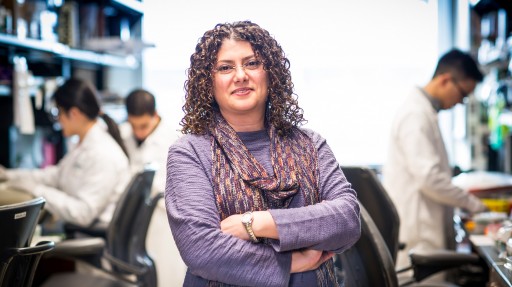
Different routes of sexual transmission affect the immune system's response to a virus, shows new study.
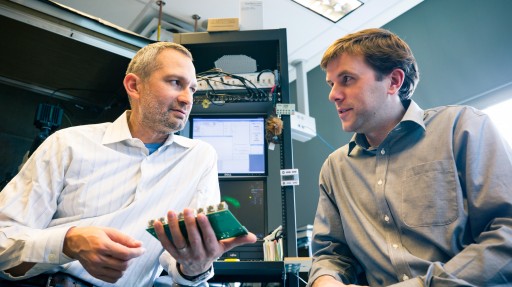
Gladstone scientists show how a type of neuron improves procedural learning.
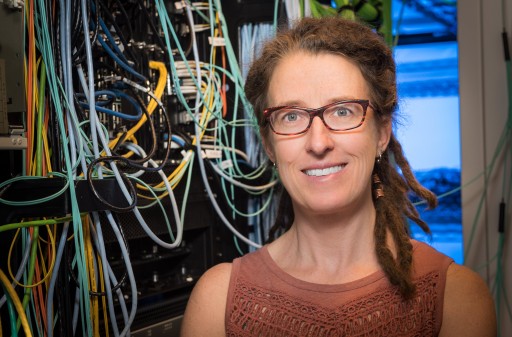
Scientists examine the fastest changing regions in the human genome to learn how our species evolved.
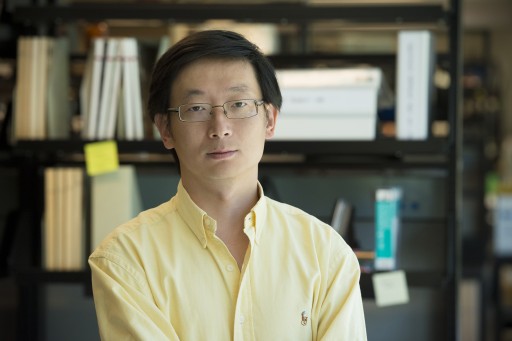
Activating a single gene is sufficient to change skin cells into stem cells.
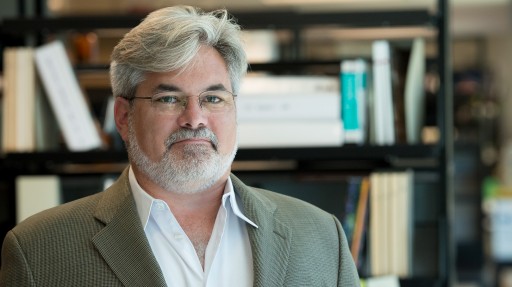
Study will use innovative technology to focus on neurodegenerative diseases
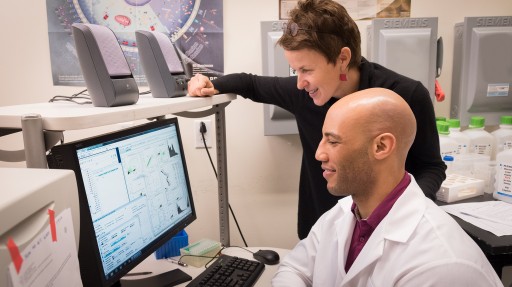
New study explains what happens when the immune system ages

